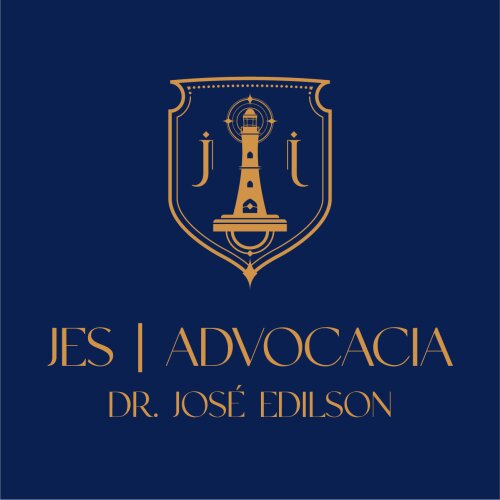Best Child Custody Lawyers in Santo Andre
Share your needs with us, get contacted by law firms.
Free. Takes 2 min.
Free Guide to Hiring a Family Lawyer
List of the best lawyers in Santo Andre, Brazil
About Child Custody Law in Santo Andre, Brazil
Child custody, known as "guarda de menores" in Portuguese, refers to the legal rights and responsibilities regarding the care and upbringing of children when parents separate or divorce in Santo Andre, Brazil. The primary consideration of the courts is the child's best interests, which generally means preserving emotional bonds, ensuring safety, and providing stability. Child custody laws in Brazil are established under the Brazilian Federal Constitution and the Civil Code but are interpreted and applied within the local jurisdiction of Santo Andre, taking into account unique social and family circumstances common to the region.
Why You May Need a Lawyer
Engaging a lawyer in child custody matters can be essential due to the legal complexities involved. Common situations where legal advice is valuable include:
- Disputes over who should have primary custody of the child
- Negotiating visitation rights for the non-custodial parent or extended family
- Requesting changes to existing custody arrangements
- Allegations of child neglect, abuse, or parental alienation
- International or interstate custody cases
- Difficulties agreeing on decision-making regarding education, health care, or religion
- Problems enforcing or understanding court orders
Local Laws Overview
Child custody laws in Santo Andre follow national Brazilian guidelines, but interpretation and procedure may have local characteristics. Key aspects include:
- Shared Custody Preference: Under Brazilian law, shared custody ("guarda compartilhada") is preferred, allowing both parents to participate equally in major decisions, even if the child primarily lives with one parent.
- Sole Custody: Granted when shared custody is impossible or not in the child's best interest, often if there are proven concerns about one parent.
- Visitation Rights: The non-custodial parent is usually entitled to regular visitation, unless it is against the welfare of the child.
- Best Interests Principle: All decisions are guided by what is deemed best for the child's development, stability, and emotional bonds.
- Modification of Arrangements: Custody and visitation can be altered if significant changes in circumstance occur, subject to court approval.
- Influence of the Child’s Wishes: Courts, depending on the child’s age and maturity, may hear the child's preferences on living arrangements.
- Administrative Procedures: Some custody agreements can be made extra-judicially through the "Cartório" (Notary Office), if uncontested.
Frequently Asked Questions
What is the difference between shared and sole custody in Santo Andre?
Shared custody allows both parents to actively participate in key life decisions for the child, regardless of where the child lives. Sole custody gives one parent primary responsibility, often limiting the other parent’s involvement to set visitation.
Does the mother always get custody of the children?
No. Brazilian law favors the best interests of the child, not a specific gender. Both parents have equal rights, and custody is determined according to the child's needs and family context.
At what age can a child decide where they want to live?
The court may consider the child's opinion, usually from age 12 onwards, depending on maturity. However, the final decision rests with the judge, using the best interests standard.
Can grandparents obtain custody or visitation rights?
Yes, under certain circumstances. If in the child’s best interest, grandparents may receive visitation rights or, rarely, custody if both parents are unfit or unavailable.
How are custody agreements enforced?
Court orders regarding custody and visitation are legally binding. If one party fails to comply, the other can seek enforcement through the courts, which may include penalties or changes in custody.
How can custody be modified once a court order is issued?
A request can be made to the court if there is a significant change in circumstances, such as relocation, change in work schedule, or concern about the child’s well-being. The court reevaluates using the best interests principle.
Is it possible to make custody agreements without going to court?
If both parents agree on the terms, an extra-judicial agreement can be formalized at the "Cartório". However, judicial approval is needed for enforceability, especially when children’s rights are involved.
Who pays child support in custody cases?
Typically, the parent whom the child does not primarily reside with pays child support, but the exact arrangement depends on incomes and the specific custody model decided.
What happens if one parent wants to relocate with the child?
Relocation usually requires consent from the other parent or approval from the court, considering the potential impact on the child’s relationship with both parents.
Is legal assistance available for low-income families?
Yes. The Public Defender's Office provides free legal assistance to families who meet certain income criteria, ensuring access to justice in custody matters.
Additional Resources
If you need more information or support regarding child custody in Santo Andre, consider these resources:
- Santo Andre Family Court (Vara de Família de Santo André): Handles all legal proceedings regarding custody, visitation, and family law.
- Public Defender’s Office of Santo Andre (Defensoria Pública): Offers free legal services to qualifying individuals for family law cases.
- Santo Andre City Council Social Services (Secretaria de Assistência Social): Provides counseling, support services, and referrals for families in crisis.
- Registries and Cartórios: Notary offices can help formalize amicable custody agreements outside of court.
- Non-governmental organizations (NGOs): Groups such as Associação de Mães e Pais Separados offer support groups, mediation, and guidance for separated parents.
Next Steps
If you are facing a child custody issue in Santo Andre:
- Assess your situation and gather relevant documentation (birth certificates, proof of residence, school records).
- Consult with a family law attorney or the Public Defender’s Office to understand your rights and options.
- If you and the other parent can agree, consider formalizing your agreement at the Cartório for speedier resolution.
- If disputes exist, be ready to initiate court proceedings, always prioritizing the child's welfare.
- Keep records of all communications and agreements with the other parent.
- In urgent cases (such as suspected abuse), contact social services or the police immediately.
- Familiarize yourself with court procedures and requirements with help from local resources or professionals.
Lawzana helps you find the best lawyers and law firms in Santo Andre through a curated and pre-screened list of qualified legal professionals. Our platform offers rankings and detailed profiles of attorneys and law firms, allowing you to compare based on practice areas, including Child Custody, experience, and client feedback.
Each profile includes a description of the firm's areas of practice, client reviews, team members and partners, year of establishment, spoken languages, office locations, contact information, social media presence, and any published articles or resources. Most firms on our platform speak English and are experienced in both local and international legal matters.
Get a quote from top-rated law firms in Santo Andre, Brazil — quickly, securely, and without unnecessary hassle.
Disclaimer:
The information provided on this page is for general informational purposes only and does not constitute legal advice. While we strive to ensure the accuracy and relevance of the content, legal information may change over time, and interpretations of the law can vary. You should always consult with a qualified legal professional for advice specific to your situation.
We disclaim all liability for actions taken or not taken based on the content of this page. If you believe any information is incorrect or outdated, please contact us, and we will review and update it where appropriate.














